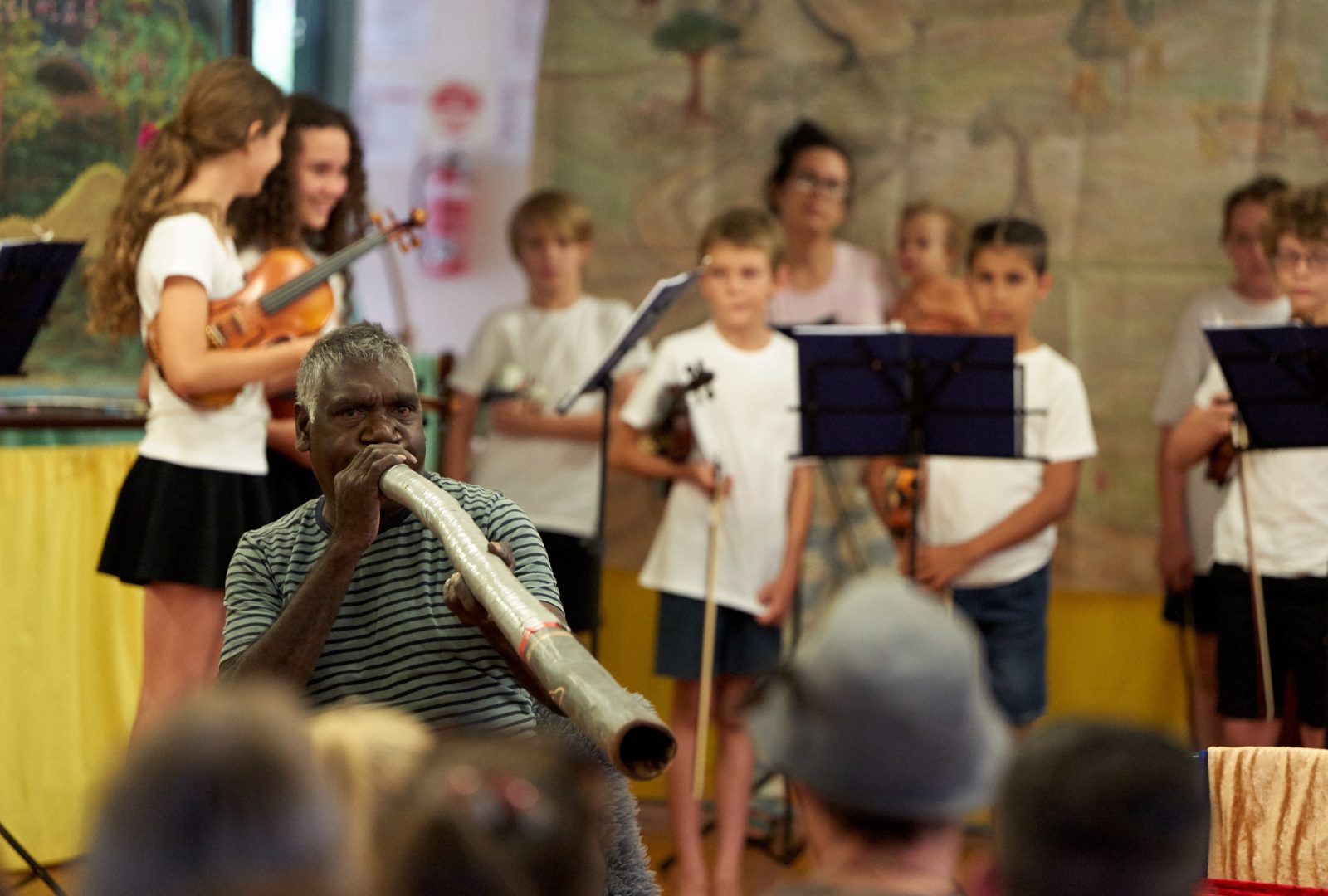Music Program
Rudolf Steiner described music as ‘the very heart of nature’. Music Education is engaged in for its inherently joyful and life-affirming qualities. The most important aspect of music education is for the teacher to understand each child’s musical path and to attempt to give it recognition as something precious to be nurtured.
Music takes a central position in Steiner education, studied both as a discrete discipline and most importantly as a vital part of the pedagogy. In broad terms, Steiner Education aims to harmonise the physical and spiritual aspects of the child. Music supports this aim across the curriculum by offering a way of understanding the dynamic connections between the growing human being and their stage in the development of consciousness.
Listening, creating and performing music are all integral aspects of a balanced music education. Through the students’ involvement in sequential and age-appropriate activities, they develop a refined ability to experience and eventually understand music from many different cultures, historical periods and places. Engaging with Indigenous Knowledge, Songlines and musical practices, led by Traditional Owners, is a vital element of our Music Program.
Music Curriculum Goals and Skills
In addition to the overarching aims of the Australian Steiner Curriculum: The Arts, the following knowledge, understanding and skills are developed in students:
- The ability to communicate with others in musical contexts (ensemble playing).
- The ability to sing and play instrumental music for enjoyment and self-expression.
- The ability to create original music as a way of communicating feelings and ideas.
- The ability to respect and make aesthetic judgments about music in different cultural and historical contexts using appropriate meta-language.
- A life-long love for a wide range of musical activities.
- An understanding of the role music can play in sustaining good health.
Students develop their skills in vocal and instrumental performance from the beginning of their schooling. They are introduced first of all to simple pentatonic songs and imitate the teacher’s careful singing. As they progress they become more able to sing within a larger range of notes and tonalities, with greater control of dynamics and timbre and with the intention of expressing thoughts and feelings. They begin with unison singing and end by singing and reading sophisticated pieces of music in harmony.
They experience the process of practicing over many years in order to achieve a musical goal. It is through this that they learn the deep satisfaction of self-discipline and commitment to a progressively more difficult yet rewarding task. Ensemble skills are developed throughout the instrumental program. Students gradually develop the capacity to listen with an awareness of the elements of music and a growing understanding of the importance of cultural and historical context. They increasingly use their aural sensitivity and expanded conceptual framework to inform their musical performance and composition.
Ultimately, the art of music is a social art and students are encouraged to use music as a way of building bridges to other people, often communicating on a level that is non-verbal but profound.
Instrument Studies
Milkwood students from Class 3 to 6 receive specialist tuition in the violin, viola or cello.
Children receive eight lessons/term with an expectation of a daily home practice facilitated by the parent/caregiver. Families are required to hire or purchase instruments and method books. As the lesson course is individualized to each child’s learning style and personal goals, instructions for which music books to purchase is given through direct contact between the parent and teacher.
Choir and String Ensemble
Milkwood students from Class 3 to 6 participate in weekly choir and string ensemble lessons. These groups perform regularly at school festival and public events. Opportunities to engage with teaching artists, Indigenous Knowledge, music masterclasses and collaborations with arts organizations enrich our program.



